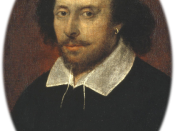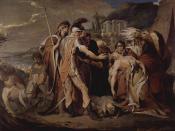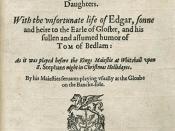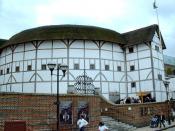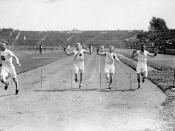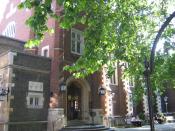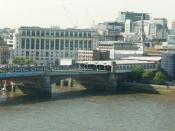The reign of James I was the time of disillusionment and pessimism. The English expected stability and security from the new king and felt let down when he appeared to be less of a man than his predecessor, Elizabeth I, was. Even though James I despised war he thought himself to be the king of kings. He considered himself a Solomon-like figure, his wisdom rising above the law (coming down to London from Scotland he had a cutpurse hanged without trial in Newark because he had found the man guilty). He was given to homosexuality, and interested in witchcraft. The only thing he liked about England was its church: he supported his bishops fervently and they supported him in return.
The literature of the era differs from the literature of the Elizabethan period not so much in quality as in degree: it became growingly more serious, somber, socially engaged, and aware of corruption.
The plays got more sophisticated, more passionate and violent, and they investigated more deeply the matter of human weakness.
Shakespeare's Jacobean phase shows great divergence from his Elizabethan phase. During this period he wrote a number of his great tragedies (Othello, King Lear, Macbeth, Coriolanus, Anthony and Cleopatra), his dark, problem comedies devoid of careless gaiety, all of his tragicomic romances, and all this in a short space of time. The tragedies seem to have been composed from 1604 to 1608. Othello, with its first performance in 1604, was possibly written while Elizabeth was still alive. From 1608 to 1612 he wrote the tragicomic romances, the enigmatic and puzzling nature of which indicates that he was experimenting with old and new stage conventions. It is easy to oversimplify the reasons for this shift and try to explain it from the point of view of the writer's private life or the political changes. However, one thing that remains certain is that Shakespeare was a man who always lived with his time and sought to develop new forms. James I was not a warrior-king and Shakespeare knew that he would no longer be able to write such fire-snorting plays as Henry V. So, as Jonson became more interested in the social matters, Shakespeare turned to the proper study of human nature, and he proved he was good at it.
The king was a great lover of arts. What he liked best were masques. Masques had in them much of morality interlude, with virtues and vices represented symbolically (virtues always winning, of course). They were one act pieces and unlike in the classical theater women could play in them. Shakespeare could have made a fortune out of them. However, the artist seems to have got the better of the man, and he never wrote a single masque. He remained faithful to his five act tragedies and the king though so highly of the Lord Chamberlain's Men that he changed their name to the King's Men and paid them twice the sum the late queen Elizabeth used to pay to see them play.
Thus Shakespeare's company were at the height of their prosperity during the Jacobean age. Shakespeare continued to write his plays for the Globe, for royal command purposes and for the indoor theatre at Blackfriars, and it was at the Globe and the Blackfriars that Shakespeare reached the pinnacle of his career. He had everything he could have ever wanted and he proceeded to represent human life as tragedy.
